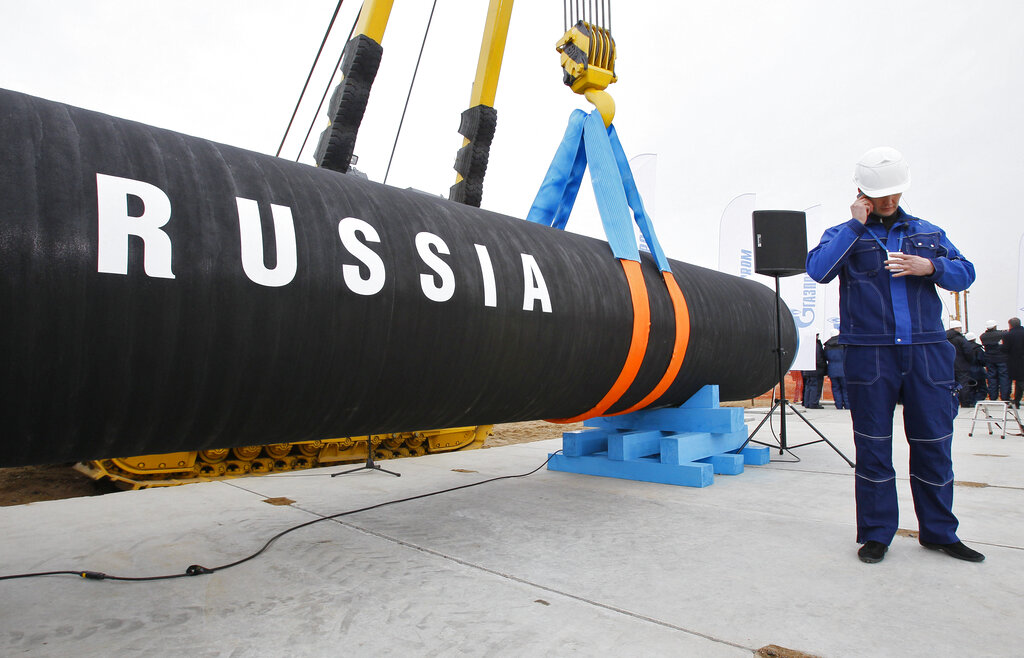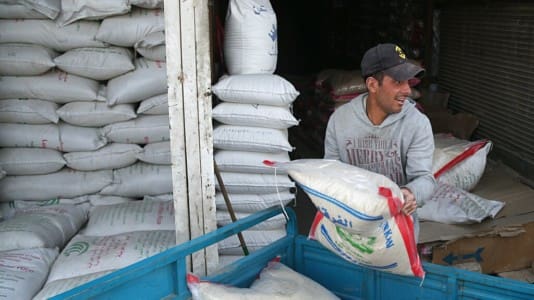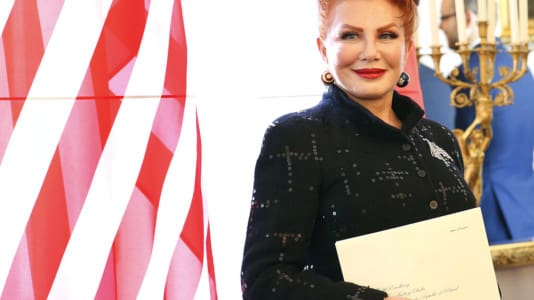European countries currently reluctant to suspend ongoing energy supply agreements with Russia could be compensated by richer, Western nations should they join in on imposing sanctions against Russian gas and oil companies, the U.K.’s Foreign Secretary Liz Truss suggested on Thursday.
In a speech to the Atlantic Council think tank in Washington D.C., Truss urged fellow European states to join the U.S. and the U.K. in severing gas and oil ties with Moscow, and called for an end of Europe’s strategic dependence on Russian energy, insisting the continent cannot afford to continue being “at the mercy of malign actors.”
Europe is currently divided as to the extent it is prepared to go with regards to energy sanctions against the Kremlin, with the lack of unity laid bare at Friday’s European Council summit during which French President Emmanuel Macron expressed his desire for the European Union to join the U.K. and U.S. in suspending energy supply agreements with Moscow, while Hungarian Prime Minister Viktor Orbán announced in no uncertain terms that his country could ill-afford to follow suit.
However, the U.K. foreign secretary revealed that richer, Western nations “should look at potential compensation for countries that are especially dependent on Russian energy,” in a bid to unite the transatlantic response to Russia’s invasion of Ukraine.
While the current economic sanctions on Moscow have crippled the Russian economy to the point that the World Bank warned on Thursday that Russia is “mighty close” to a default on its foreign debts, Truss insisted that allies are still “not doing enough,” and called for the West to “double down and ramp up the global pressure on Putin.”
The first port of call in Truss’ view is for Europe to end its “strategic dependence” on Russian energy imports.
“Europe remains deeply reliant on Russian energy. This provides a vital source of revenue for Putin — so it must end,” she told the Atlantic Council think tank.
“We should put a ceiling on the percentage of Russian energy imports. We should commit to bringing them down over time, and we should look at potential compensation for countries that are especially dependent on Russian energy,” Truss added.
It is unclear how such a compensation scheme would operate, or whether European nations with closer energy ties to Russia, such as Hungary and Germany, would sign up for the idea, with the topic of energy proving to be a sticking point for Western allies on which they are struggling to reach a consensus on moving forward.
Countries like Hungary are also still waiting for Covid-19 recovery funds promised from the EU. Instead of distributing them to Hungary and Poland, they are being withheld to put pressure on both countries’ conservative governments. In other words, any promises for compensation for dropping Russian gas are likely to be viewed as incredulous by conservative governments at odds with the dominant liberal establishment.






